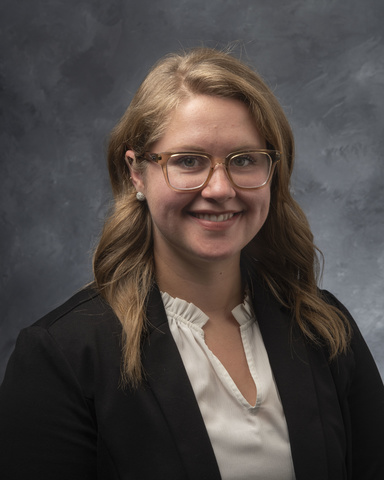By Emily Delgado
Jess Gorzelitz, assistant professor in the Department of Health and Human Physiology in the College of Liberal Arts and Sciences, was featured last fall on an episode of ResearchPod, a science podcast focused on connecting researchers to a wide-ranging audience.

Gorzelitz’s episode was on the benefits of exercise, including weightlifting, after a cancer diagnosis.
At the University of Iowa, Gorzelitz directs the Physical Activity and Cancer Survivorship lab which uses both interventional and observational research designs to help improve quality of life for cancer survivors through exercise. Gorzelitz also serves as an assistant professor in the Department of Obstetrics and Gynecology, as well as a member of the Holden Comprehensive Cancer Center.
“I explained why physical activity is important in the post-diagnosis period, what we know about physical activity and certain health outcomes, like why this is such an important health behavior,” Gorzelitz said.
Besides sharing her expertise on the podcast, Gorzelitz hopes her feature in the podcast can serve as a way to recruit staff and trainees work being done at Iowa.
Gorzelitz’s feature on ResearchPod was not her first time talking about her research to a wide-ranging audience.
“I was interviewed by several podcasts, and they were all really great experiences,” Gorzelitz said.
Gorzelitz was also interviewed by the Today Show and BBC. The BBC London Newscast was intense but exciting nonetheless, Gorzelitz said.
“The conversation was a really good example of exercise and scientific communication. The work I was talking about was mortality data from a cohort study and these are things that people glaze over. I spoke in words that people could understand. It just makes it a bit more accessible,” Gorzelitz said.
On top of sharing her research with the world, Gorzelitz teaches Advanced Research Methods and Ethics, as well as Physical Activity Psychology. Gorzelitz said she has received a lot of support from the UI and the department.
“It's been really nice to be supported by the Cancer Center and the faculty there and across campus. There are quite a few individuals who are great experts in cancer who have been really helpful to that journey,” Gorzelitz said. “I also have a few good mentors in the department that have been helpful and successful there.”
Gorzelitz finds it important to share scientific communication effectively and sees podcasting as one way to connect with a global audience.